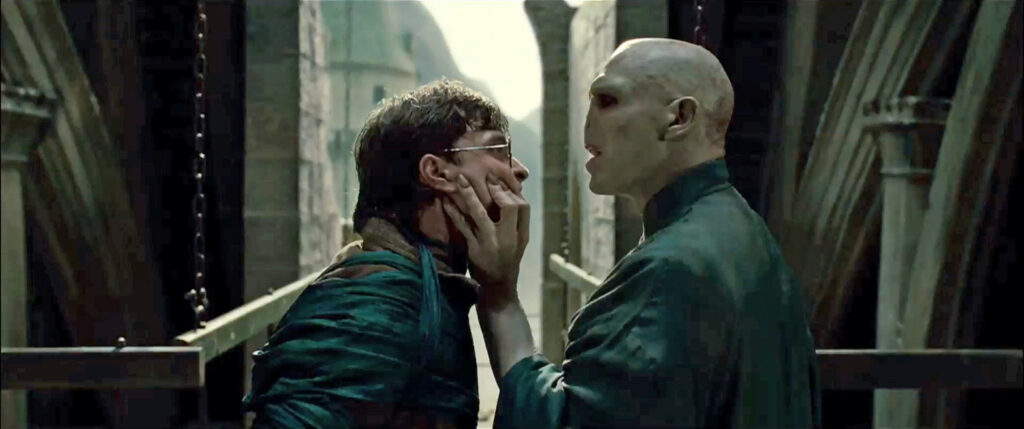Note: If you wish to receive, via e-mail, (1) my weekly newsletter or (2) daily copies of these posts, notify me at [email protected] and indicate which you would like. I promise not to share your e-mail address with anyone. To unsubscribe, send me a follow-up email.
Monday
Whether he was murdered or died as the result of harsh imprisonment, Russia’s Alexei Navalny has paid the ultimate price for opposing Vladimir Putin. In an interview with MSNBC’s Chris Hayes Friday night, dissident Russian journalist Mikhail Zygar talked about how many Russians had come to see Navalny as Harry Potter, “the boy who lived,” and can’t believe he is dead. Just as Harry three times survives Voldemort’s attacks, once as a baby and twice in the final book, so it appeared to many that Navalny would survive Putin’s machinations. After all, Putin had once poisoned him and he had bounced back from that.
In the end, however, the man Zygar described as the last uncynical Russian—a man who believed in democracy with all his soul—could not hold out against a bloodthirsty dictator. Russians had hoped that Navalny was Russia’s George Washington, Zygar told Hayes, but said that instead he proved to be Russia’s Martin Luther King.
Let’s examine the Harry Potter comparison, however. In the last of the Harry Potter novels, Harry becomes a Christ-like figure, sacrificing himself for his followers and for all that is good and right. Once he discovers he is one of the horcruxes keeping Voldemort alive, he knows he himself must die if Voldemort is to become mortal. Therefore, he allows Voldemort to kill him—only instead of ending Harry’s life, Voledort’s killing curse kills his own soul fragment that is lodged in Harry. As a result, Harry can return to confront—and this time defeat—the tyrant.
Deathly Hallows, however, is a fantasy whereas there is no coming back for Navalny. It’s as though the final Harry Potter novel ends with Voldemort delivering the curse:
Voldemort had raised his wand. His head was still tilted to one side, like a curious child, wondering what would happen if he proceeded. Harry looked back into the red eyes, and wanted it to happen now, quickly; while he could still stand, before he lost control, before he betrayed fear—
He saw the mouth move and a flash of green light, and everything was gone.
The comparison with Martin Luther King reminds me of a Lucille Clifton poem on the assassination:
the meeting after the savior gone
4/4/68what we decided is
you save your own self.
everybody so quiet
not so much sorry as
resigned
we was going to try and save you but
now i guess you got to save yourselves
(even if you don’t know
who you are
where you been
where you headed)
So if Navalny can’t save Russia now, “i guess you got to save yourselves.”
But maybe, just maybe, there can be a Harry Potter ending after all. Once Harry, with the help of Neville, manages to kill the remaining horcruxes (himself and the snake Ngani), Voldemort is suddenly vulnerable in a way he hadn’t been before. At the same time, Harry’s inspiring sacrifice manages to galvanize “Dumbledore’s Army” into action so that, when he returns from the dead, it is to witness a full-blown rebellion against Voldemort.
Maybe it’s not too much of a far-flung fantasy to think that Navalny’s sacrifice has not been in vain. Maybe, just maybe, he has opened up cracks in Putin’s reign of terror. Maybe, just maybe, Putin will suffer Voldemort’s end. Here’s the moment:
And Harry, with the unerring skill of the Seeker, caught the wand in his free hand as Voldemort fell backward, arms splayed, the slit pupils of the scarlet eyes rolling upward. Tom Riddle [Voldemort] hit the floor with a mundane finality, his body feeble and shrunken, the white hands empty, the snakelike face vacant and unknowing. Voldemort was dead, killed by his own rebounding curse, and Harry stood with two wands in his hand, staring down at his enemy’s shell.
And if, or when, that moment occurs, can we fantasize that we will see something comparable to the reaction to Harry’s victory:
One shivering second of silence, the shock of the moment suspended: and then the tumult broke around Harry as the screams and the cheers and the roars of the watchers rent the air. The fierce new sun dazzled the windows as they thundered toward him, and the first to reach him were Ron and Hermione, and it was their arms that were wrapped around him, their incomprehensible shouts that deafened him….[A]nd Harry could not hear a word that anyone was shouting, nor tell whose hands were seizing him, pulling him, trying to hug some part of him, hundreds of them pressing in, all of them determined to touch the Boy Who lived, the reason it was over at last—
It’s important, when opposing authoritarianism, to be clear-eyed. Fantasy will get one only so far, and wishing can lead to spectacular shipwrecks on the rocks of reality. But that being acknowledged, it’s also true that literary narratives, including those found in fantasy novels, have sometimes propelled activists to change the world in ways that no one could foresee. Don’t underestimate the power of dreaming. Harry Potter may yet stage a comeback.
